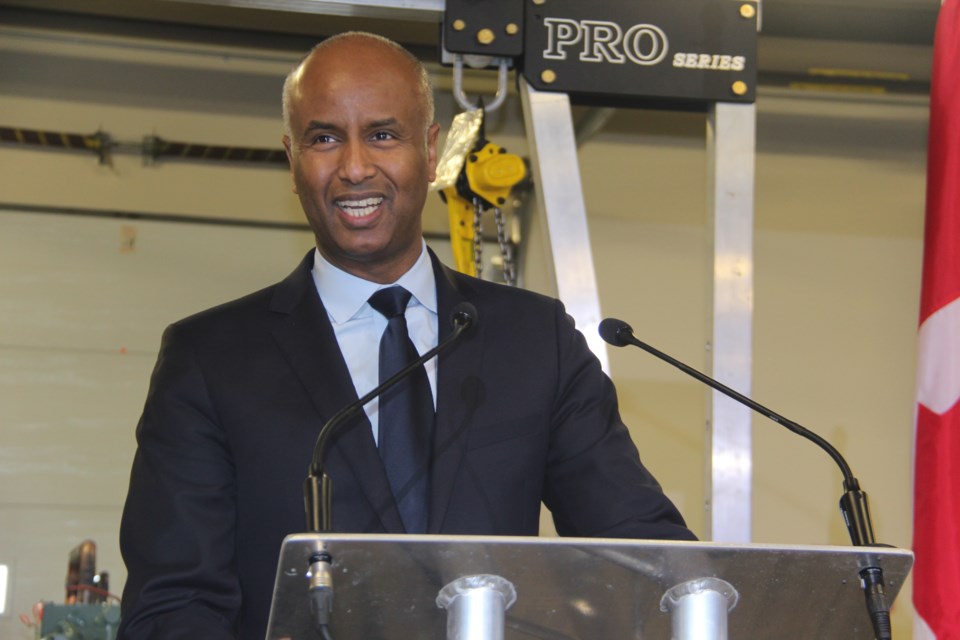Canada’s economy can’t afford to have thousands of women with children out of the workforce because they don’t have access to affordable child care, the federal minister of Families, Children and Social Development says.
“We can’t have that as a country. We can do better,” said Ahmed Hussen at a virtual event hosted by the Boys and Girls Club (BGC) of York Region today to talk about the Liberal government’s newly released budget and its focus on a national child care plan.
“Today is about bringing real options to the table for parents. It’s about building a strong early learning and child care system in Canada,” he said. “No child is left behind.”
The COVID-19 pandemic has made a national child care program an economic necessity, Hussen said.
Monday’s budget outlined an investment of about $30 billion over five years toward the cost of early learning and child care services. The cost of child care to parents could be cut by 50 per cent, on average, by the end of 2022.
The government is aiming to significantly reduce child care costs to about $10 per day within the five years of its funding commitment, Hussen said.
The government will then provide about $9.2 billion annually to lower costs, create new spaces and hire more early childhood educators, he said.
Because child care is primarily a provincial responsibility, Ottawa will have to negotiate the program with the provinces and territories.
“We cannot do it alone,” Hussen told NewmarketToday in a telephone interview. “We will sit down with Ontario. We’ll figure out how to make this work for Ontario families.
“There are things we won’t compromise on. We are determined to reduce fees for parents.”
The budget also includes a $400-million Community Services Recovery Fund to help charities and non-profit organizations support the economic recovery in their communities.
“We are really thrilled to see that the federal government has responded and is partnering with our sector’s call for creating a community service recovering fund,” said Owen Charters, president and CEO of BGC, during the virtual Facebook event.
“One of the gaps this funding is going to fill is access to child care, which, as we know, is vital. It allows parents, especially mothers, to get back in the workforce.”
According to Hussen, the plan is also designed to support workers by creating more inclusive work environments and job opportunities in the child care sector.
The plan is to implement a system that will prompt more recruitment, which will then create more child care spaces. He said by providing the tools, training and resources, workers will be able to deliver high-quality and culturally relevant child care.



